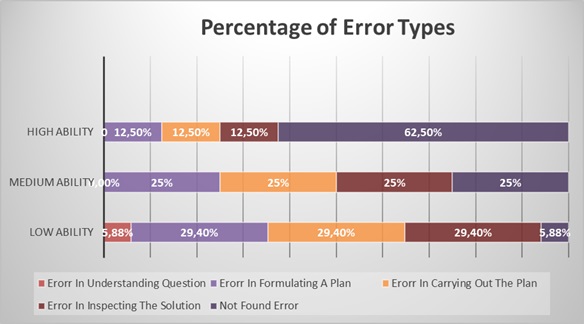Students' mathematical errors in solving literacy and numeracy problems
DOI:
https://doi.org/10.23917/jramathedu.v9i2.10464Keywords:
Mathematics ability, Mathematical erros, Literacy, NumeracyAbstract
Numeracy literacy constitutes one of the core domains evaluated in an assessment administered by the Ministry of Religious Affairs, referred to as AKMI. This assessment functions as a comprehensive diagnostic tool to identify students’ proficiencies and deficiencies across three key literacy areas: reading, numeracy, and science. This study employed a descriptive qualitative approach, with fifth-grade students as the subjects. The research instruments included a mathematics ability test, a literacy and numeracy assessment, and semi-structured interview guidelines. The students’ problem-solving processes were analyzed through four stages: understanding the problem, devising a plan, executing the plan, and evaluating the solution. Findings revealed that students with low mathematical ability frequently encountered difficulties in the planning, execution, and evaluation stages, which collectively accounted for 29.4% of the total errors. A smaller proportion (5.88%) struggled with understanding the problem, while another 5.88% did not exhibit notable errors. Students with moderate ability demonstrated errors in the planning, execution, and evaluation phases, each contributing 25% to the overall errors; however, they showed no difficulty in identifying knowns and unknowns in the problems. High-ability students generally solved the problems without major issues, with 62.5% of their responses being accurate and error-free. Geometry-related problems posed the greatest challenge across all ability levels, resulting in a higher incidence of errors.

Submitted
Accepted
Published
How to Cite
Issue
Section
License
Copyright (c) 2024 Alfiani Athma Putri Rosyadi, Anisa Kafifah, Yus Mochamad Cholily, Siti Inganah

This work is licensed under a Creative Commons Attribution-NonCommercial 4.0 International License.


















